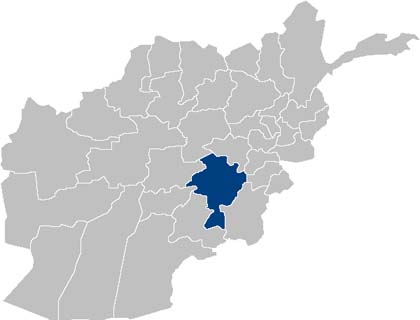Laws are set to prevent chaos and disorder and to support the rights and dignity of citizens in a society. Laws reflect moral standards of a people. All legislators have to consider the prevalent code of ethics before passing rules. A society which is devoid of law and order will experience chaos and fragmentation. The more efficiently that law and order are maintained, the more prosperous a society is. The ultimate goal of law is to respect the rights of citizens.
By and large, religion plays a crucial role in legislating, in Islamic societies. In primitive societies where law was not set, the religious instructions could control social and individual behavior. At present, the role of religion is still prominent in traditional communities. Moreover, in our society, laws are based on Islamic values. Any violation of rules is a punishable offence. When one breaks the law, it violates the rights of others and therefore it is not acceptable. Hence, people are expected to exercise their rights within the bounds of limits.
Nobody is beyond the law. Laws are not set for just special groups in a society. Abiding by the law is an obligation of all citizens, irrespective of race, sex, religion or high social status or official position. For example, if those who have high social status or official positions violate law with impunity, there will emerge a disorder in society and other citizens will fall victim of their position. Hence, even legislators have to comply with the demands of the law.
Unfortunately, in our society the executive power is weak. The laws are broken openly. People’s rights and reputation are violated with impunity. The people who have might and money hardly ever stand trial no matter how big their crime is. With a few exceptions, all of our officials are corrupt in one way or another. The case of the head of the Kabul University is a clear example of law being violated. After more than 80 university students went on a hunger strike for more than a week asking for the resignation of the university head, he was suspended just for a week. After deceiving the university students, he was brought back to his position by the official authorities. This incident reflects official corruption and a poor execution of law.
Another incident which happened in Andar District of Ghazni province is also a case of violation of law. After an IED [improvised explosive device] killing 18 wedding guests in Ghazni province, an angry mob headed for the house of Asef ,a suspected Taliban sympathizer, local officials say. According to Guardian News, the angry crowd rushed to the house and surged inside, where they ransacked the rooms and finally found Asef trying to hide in a chicken coop. Inside one room the search party also found wires and electronics of a kind they believed were used in bombs.
The Guardian quotes a man introducing himself as Mohammad, who is seemingly a police: “I tried to interfere but the people didn’t allow the national police to have control. They brought him (Asef) out from the house and broke his arms and legs, and after that they started beating him with stones. “
The report added that eventually, the man confessed to planting the first bomb and a second one nearby. The mob beat and kicked him to death, using stones, planks, fists and feet.
An Indian friend of mine shared his idea with me regarding this case saying, “He may have ‘confessed’, but if you break my legs, I may admit anything you ask for.” He further added, “Mob-lynching is mob-justice. It is not acceptable in a civil society.” Of course, my friend argues with strong reason of logic and I appreciate his idea. We live in a civil society which is supposed to abide by law and order. We have constitutional law, civil law, etc. Article 29 of constitutional law states, “Torturing of human beings is forbidden. No one can torture or order the torture of anyone, even if the torture is for revealing a fact or even though the person is given chase, arrested, jailed or denounced for punishment.”
My friend also wrote that: “In Anglo-Saxon Law, no one is guilty till a court of law decides the case.” This is an undeniable fact and acceptable in our country. It is not for the mob to decide the guilt of people or to execute summary justice. We have all the Legislative, Executive and Judicial Powers in the country to decide and to execute the law. But unfortunately it is not the first case that a person has been killed by the mob. It always happens when people lose their ability to tolerate and adopt the rule of law.
If law is not executed equally or the government is not acting properly, then how is it possible to expect an orderly society. It seems an insult to hear from the national police that they were not allowed to control the mob. Law is not an optional element in society. We all are bound by it at all times.
It is the responsibility of the government to scrutinize the roots of this mistrust between people and government. It is believed that there are two reasons behind this. First, it is the poor governance which is prevalent in the country. The government does not have an upper hand over the people and country. Second, it is feared that the government will not judge fairly or they will free the criminals by accepting bribes. Such untoward cases are rife across the country. These are the major reasons behind the mistrust. These are the factors which makes it very difficult for the government to gain the confidence of the people and to prove itself trustworthy. In addition, the recent complaints which are filed against officials particularly against the judges in Gazni province, widens the rift between people and the government. If this trend continues, the country will verge on great disorder.
